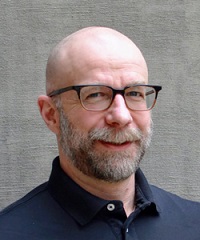Mark Does, professor of biomedical engineering has been selected as a Fellow of the International Society for Magnetic Resonance in Medicine.
His research program focuses on developing and applying MRI methods to quantitatively characterize various properties and/or compositions of tissue. It includes developing models of nuclear magnetic resonance relaxation and water diffusion in tissue, development and optimization of MRI pulse sequences and associated technology, and experimental investigation of in vivo and ex vivo tissue models.

Overall objectives have included the development and use of MRI to report specific characteristics of tissue, such as axon diameter or myelin thickness in brain white matter, myofiber size and density in skeletal muscle, or pore and bound water concentrations in bone. One recent project, for example, aims to develop and evaluate machine learning methods with the long-term aim of predicting bone fracture risk from low-cost MR measurements.
Does, who is director of graduate recruiting in biomedical engineering, is also a professor of radiology and radiological sciences and professor of electrical engineering.
He joined the School of Engineering faculty in 2002 after three years at Yale School of Medicine, first as an associate research scientist and later as an assistant professor. He received a Ph.D. in biomedical engineering from the University of Alberta, from which he also received an M.S. and B.S. in electrical engineering.
The ISMRM, a nonprofit professional and academic association devoted to the development and application of magnetic resonance techniques, announced its new class of fellows this week during its 2020 international conference, which was held virtually.